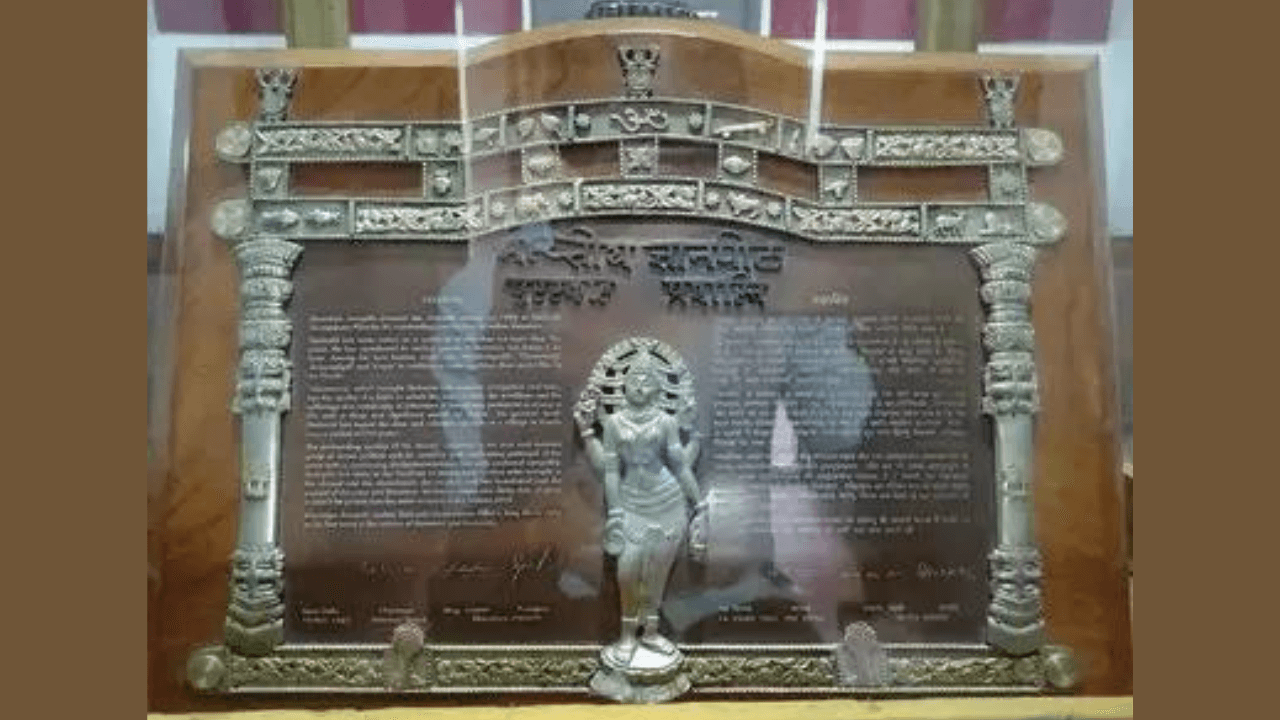57th Jnanpith Award
Damodar Mauzo, a talented writer from Goa, has been honored with the prestigious 57th Jnanpith Award, the highest literary recognition in India. Known for his skills in writing short stories, novels, critiques, and scripts in the Konkani language, Mauzo has made significant contributions to the literary world. He is the second Konkani writer to receive this esteemed award, following Ravindra Kelekar who was honored in 2008. Mauzo has authored 25 books in Konkani and one in English, showcasing his versatility as an author. His works have garnered widespread acclaim and have been translated into various languages, expanding their reach to a wider audience. The award ceremony, held at the Raj Bhavan near Panaji, Goa’s capital city, was graced by the presence of renowned poet Gulzar and other distinguished guests.
About Damodar Mauzo
Born in 1944 in the village of Aldona, Goa, Damodar Mauzo is a highly acclaimed writer known for his profound contributions to literature. His literary journey began in the early 1960s when he started penning captivating short stories. Mauzo’s work has transcended linguistic boundaries, being translated into English, French, Portuguese, and various other languages.
Mauzo’s writings often delve into the lives of ordinary people in Goa, offering realistic portrayals of social and economic issues. His stories have garnered praise for their insightful exploration of the human condition and their compassionate treatment of diverse characters. His keen observation and sensitive storytelling have earned him a distinguished place in the literary realm.
After completing his education at the University of Bombay, where he obtained a Bachelor of Arts degree in English, Mauzo embarked on a career as a journalist. However, his passion for writing led him to become a full-time author, dedicating himself to the craft.
In 1965, Mauzo’s first short story, titled “The End of the Night,” was published, marking the beginning of his literary journey. Since then, he has authored a remarkable collection of over 25 books, encompassing novels, short story compilations, and thought-provoking essays. The universal appeal of his work has facilitated translations, allowing readers worldwide to experience the richness of his storytelling.
Mauzo’s literary prowess has been recognized through numerous prestigious awards, including the Padma Shri and the Padma Bhushan. His renowned novel, “Karmelin,” earned him the esteemed Sahitya Akademi Award in 1983, further solidifying his literary standing. He is a distinguished member of the Sahitya Akademi and the Goa Konkani Academy, institutions that celebrate and promote literature.
Mauzo’s writings make a valuable contribution to the literary landscape, capturing the essence of human experiences with depth and eloquence. His ability to craft insightful and compassionate narratives has established him as a master of the short story genre. It is in light of his exceptional literary achievements that he has been rightfully honored with the prestigious Jnanpith Award, a testament to his lasting impact on the world of literature.
About Jnanpith Award
The Jnanpith Award is a prestigious literary honor in India, considered the highest recognition for literary excellence in the country. Established in 1961, it is presented annually by the Bharatiya Jnanpith, a literary and research organization. The award recognizes outstanding contributions in the field of Indian literature and is given to authors writing in any of the 22 officially recognized languages of India.
The Jnanpith Award aims to honor writers who have made significant literary contributions and have enriched the cultural and literary heritage of India. It recognizes excellence in various literary genres, including novels, poetry, plays, essays, and short stories.
The selection process for the award involves a rigorous evaluation by a committee of eminent literary figures and scholars. The committee considers the overall literary merit, thematic depth, and impact of the author’s body of work. The chosen author is then presented with a cash prize, a citation, and a bronze replica of Saraswati, the Hindu goddess of learning and wisdom.
Receiving the Jnanpith Award is considered a prestigious achievement and brings national and international recognition to the author. It not only honors the individual writer but also promotes and encourages literary excellence in India.
Over the years, the Jnanpith Award has been bestowed upon renowned Indian authors from various linguistic backgrounds, contributing to the rich tapestry of Indian literature. The award serves as a celebration of the diversity and depth of literary talent in India, fostering cultural exchange and appreciation of Indian literature both within the country and across the globe.
- 3 August Current Affairs 2023 in English
- MoU Between Subroto Mukerjee Sports and Education Society and All India Football Federation (AIFF) to Promote Football at Grassroot Level
- Dr. Mansukh Mandaviya Delivers Keynote Address at the 13th Indian Organ Donation Day ceremony
- Education Ministry Forms Expert Panel on Anti-Discrimination in Higher Education
- Concerns Arise Over Cheetah Deaths at Kuno National Park
